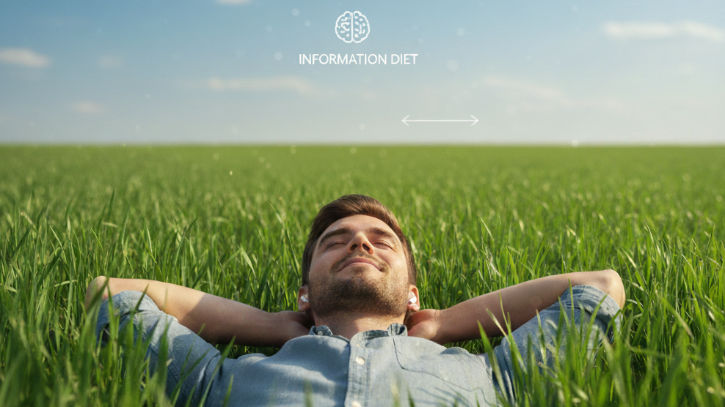Information Overload is Killing Your Productivity: Here's the Cure
12/28/2024

I used to be proud of my information consumption habits. I had 47 browser tabs open, checked email every few minutes, and subscribed to 23 different newsletters. I felt like I was staying on top of everything, constantly informed and up-to-date.
But here’s the uncomfortable truth: I was drowning in information and starving for knowledge.
The average knowledge worker checks email every 6 minutes, has 40+ browser tabs open simultaneously, and receives 121 emails daily. We’ve created a productivity paradox: access to infinite information has made us less informed, not more.
The Hidden Cost of My Information Addiction
I didn’t realize how much information overload was costing me until I started tracking it. Decision fatigue was exhausting me before I even got to important work decisions. I’d spend 20 minutes just choosing which article to read next, then skim through it without really absorbing anything.
Shallow processing became my default mode. I was reading multiple sources simultaneously, but I wasn’t understanding any of them deeply. I’d finish a 3,000-word article and struggle to explain the main points to a colleague an hour later.
Worst of all, I was experiencing productivity theater—feeling busy while accomplishing little substantive learning. I’d spend hours “staying informed” but couldn’t point to a single insight that had influenced my work decisions.
Why My Traditional Solutions Failed
I tried everything to manage my information consumption. Bookmarking just created digital hoarding—I had over 500 saved articles I’d never read. Speed reading sacrificed comprehension for coverage. Content curation tools still required time to review and filter. Reading schedules were too rigid and didn’t adapt to changing priorities.
The problem wasn’t the tools—it was my approach. I was trying to consume everything instead of consuming intelligently.
How Audio Summaries Saved My Sanity
This is where audio summaries became my lifeline. Instead of trying to read everything, I started focusing on pre-filtered content that delivered value in exactly 60 seconds. The key was cognitive efficiency—my brain could process one concept at a time, enhancing retention instead of overwhelming it.
I began consuming information during otherwise unproductive time—my commute, workout, or coffee breaks. Suddenly, I wasn’t sacrificing work time to stay informed. I was multitasking in a way that actually worked.
Building My Information Diet
I started thinking about information consumption like nutrition. Just as I wouldn’t eat everything available, I shouldn’t consume every piece of content I encountered. I created a simple framework:
20% industry trends to stay current, 30% strategic insights for long-term thinking, 30% tactical knowledge for immediate application, and 20% personal development for growth.
I structured my daily habits around this: industry news during morning coffee, strategic thinking during my commute, tactical skills during lunch, and personal growth content in the evening.
The 3-Filter System That Changed Everything
I developed a simple filtering system that transformed my information consumption:
Filter 1: Source Quality—Only follow proven experts and authoritative publications. Quality beats quantity every time.
Filter 2: Relevance Timeline—Ask “Will this matter in 6 months?” Prioritize evergreen insights over trending topics.
Filter 3: Actionability—Focus on content that can influence decisions or behaviors within 30 days.
This system eliminated 80% of the content I was consuming while dramatically improving the quality of insights I gained.
Measuring My Information ROI
I started tracking the return on my information investment with simple weekly questions: Which insights influenced actual decisions this week? What knowledge gaps did I identify and fill? How did new information change my perspective on current projects?
The results were eye-opening. Within a month, I was making better decisions because I had higher-quality inputs. Within a quarter, I was thinking more strategically because I had consistent expert insights. Within a year, colleagues were asking me for my perspective on industry trends.
The Compound Effect of Focused Learning
The transformation wasn’t just about productivity—it was about becoming more strategic. By focusing on high-value insights rather than comprehensive coverage, I developed clearer thinking and better judgment.
Week 1: Reduced anxiety from manageable information flow
Month 1: Improved decision-making from better-quality inputs
Quarter 1: Enhanced strategic thinking from consistent expert insights
Year 1: Recognized thought leadership from applying curated knowledge
Information overload isn’t a technology problem—it’s a strategy problem. The cure isn’t consuming more efficiently; it’s consuming more intentionally. And that starts with understanding that less can truly be more.